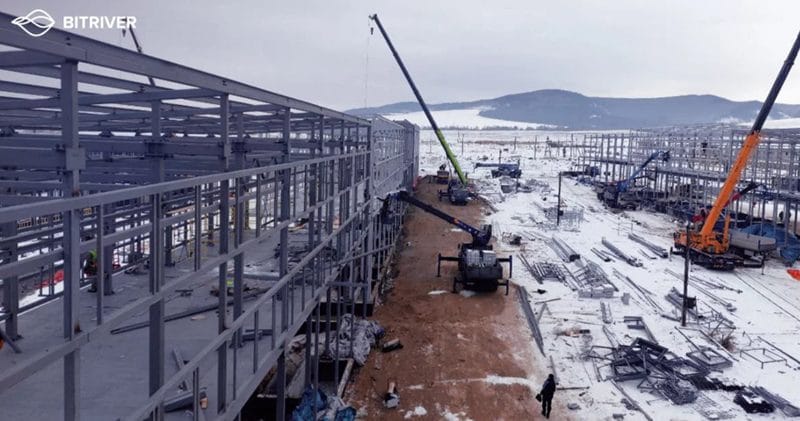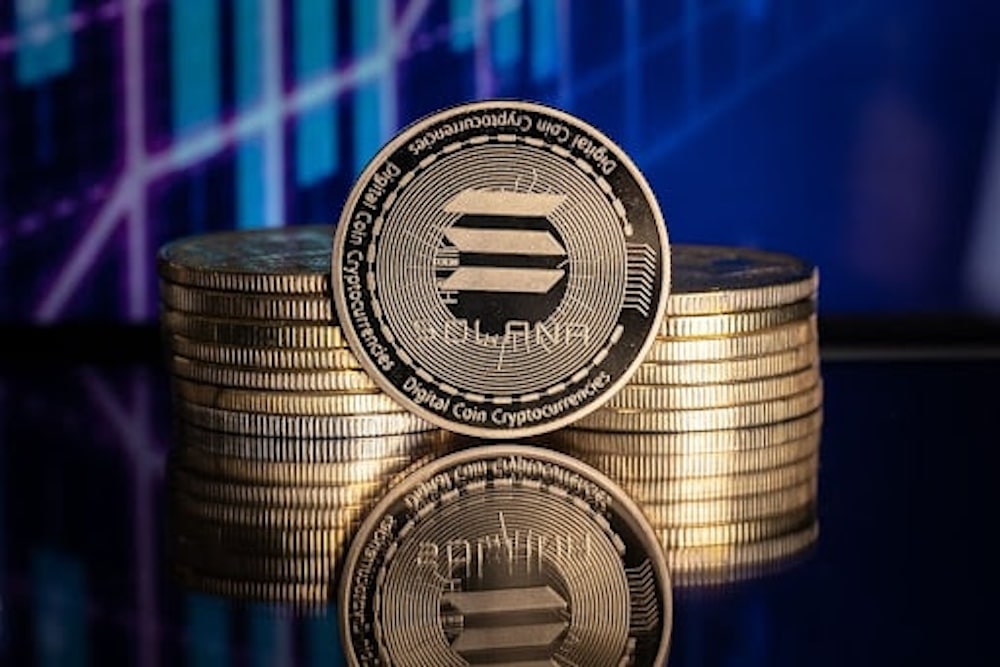Russian lawmakers are moving towards the legalization of the country’s industrial crypto mining sector, although they are considering imposing strict regulations on smaller, private crypto miners who operate from home.
According to reports from Finam and RBC, Anton Gorelkin, Deputy Chairman of the State Duma Committee on Information Policy, has confirmed that the State Duma is set to discuss a new mining law during its current legislative session.
This legislative move could significantly shape the framework within which crypto mining operates in Russia, delineating a clear distinction between large-scale industrial mining activities and smaller private endeavors.
Besides Crypto Miners, New Law Will Also Affect Crypto Exchanges
The Russian government is advancing a new mining bill linked with broader crypto regulations that would prohibit most crypto exchanges from operating within the country. The forthcoming legislation, however, will include specific exemptions for businesses under the supervision of the Central Bank’s regulatory sandbox, particularly international trading companies that utilize cryptocurrencies instead of USD for global transactions.
Under the new regulatory framework, industrial crypto miners will have the opportunity to access these Moscow-regulated exchanges, but their use will be restricted solely to selling their tokens. As detailed by lawmaker Gorelkin, the legislation will permit only Russian corporations and business operators with explicit authorization to continue mining activities.
Legislative bodies expect to pass the bill in the near future, aiming for it to take effect on September 1. This move is seen as part of Russia’s ongoing efforts to integrate crypto operations within its national regulatory system, focusing particularly on international trade and industrial mining.
Industrial Crypto Miners Will Also Be Obliged To Provide Reports On Their Activities

Source: BitRiver
In recent developments concerning cryptocurrency mining in Russia, Gorelkin clarified that individuals adhering to government-established energy consumption limits could engage in coin mining without the need for special permits. This marks a departure from earlier proposals to prohibit all non-industrial crypto-mining activities.
Despite these allowances for small-scale miners, the specific energy consumption caps have yet to be defined. This uncertainty comes as Russian energy providers intensify efforts to crack down on illegal mining operations, signaling a potentially low tolerance for residential mining setups. Additionally, industrial mining operations are now required to submit activity reports to Rosfinmonitoring, Russia’s anti-money laundering body, reflecting increased regulatory oversight in the sector.
Enhancing Local Authority And Addressing Grid Pressure
In recent legislative developments in Russia, lawmaker Gorelkin has articulated provisions for industrial miners to sell cryptocurrency independently of Russian information systems, suggesting a potential reliance on foreign crypto exchanges. This move aligns with previous regulatory strategies aimed at directing the domestic crypto output to international platforms, thereby isolating it from the local economy. This approach supports the Central Bank’s broader goal of excluding crypto assets from the domestic sphere as it prioritizes the development of the digital ruble.
Exclusive: As China's big banks pull back from financing Russia-related transactions, some Chinese companies are turning to small banks on the border and underground financing channels such as money brokers and banned cryptocurrency https://t.co/GLmIBNPaHR
— Reuters (@Reuters) April 29, 2024
Further, the proposed legislation would empower energy suppliers and local governments, a response to issues faced in regions like Irkutsk where officials have reported that crypto mining activities have strained local power grids. The bill proposes that the Russian government could be granted authority to prohibit mining in specific areas. Despite these outlined powers, Gorelkin acknowledged that the terms and extent of such prohibitions require further discussion and clarification.
What Experts Have To Say About This Major Move
In Russia, legal experts are divided on the prospects of new legislation aimed at regulating the cryptocurrency mining industry. Yuri Brisov, a partner at Digital and Analogue Partners, criticized the draft law’s quality in comments reported by RBC, highlighting that this marks the eighth attempt to legislate mining operations.
He pointed out significant flaws in the bill, including a poorly defined concept of mining and overall substandard drafting, which he believes diminishes its chances of passing in its present form. Furthermore, despite intentions to enact the bill by September, Brisov indicated that significant revisions would be necessary before it could be considered for a vote. This latest legislative effort is believed to stem from strong lobbying by the industrial mining sector.
How’s Russia’s CBDC Development Amidst All This
Russia is actively advancing its Central Bank Digital Currency (CBDC), the digital ruble, with a structured rollout plan extending into the mid-2020s. The digital ruble, signed into law by President Vladimir Putin in mid-2023, is designed as a third form of money alongside cash and non-cash rubles. It aims to enable payments both online and offline, enhancing convenience for users without mandating its adoption.
The pilot phase for the digital ruble began with select banks and has been progressing through various stages. The Central Bank of Russia has been cautious in its approach, emphasizing that a wider rollout will not occur until after 2024. This methodical progression includes testing the digital ruble in real-world scenarios, such as peer-to-peer transactions and retail purchases, and ensuring the infrastructure supports both cybersecurity needs and offline capabilities.
Looking ahead, the complete implementation and potential mass adoption of the digital ruble are anticipated to occur between 2025 and 2027. During this period, the infrastructure and regulations necessary for a broad rollout will be refined and expanded, ensuring that the digital ruble can function effectively as a secure and practical payment option.
- Crypto Price Update July 24: BTC Maintains $66K, ETH at $3.4K, XRP, TON, and ADA Rallies
- Bitcoin Falls to $65K as Mt. Gox Transfers $2.8 Billion BTC to External Wallet
- News of Marathon Digital’s $138 Million Fine for Breach of Non-Disclosure Agreement Triggers a Bearish 2.5% of Its MARA Stock
- Are $530M Bitcoin ETF Inflows a Blessing or Caution?
- Metaplanet Teams with Hoseki for Real-Time Bitcoin Holdings Verification
- Building Secure Blockchain Systems: An Exclusive Interview with ARPA and Bella Protocol CEO Felix Xu
- Building The “De-Facto Crypto Trading Terminal”: An Exclusive Interview with Aurox CEO Giorgi Khazaradze
- Building a New Global Financial System: An Exclusive Interview With Tyler Wallace, Analytics Head at TrustToken
- “Solana is the Promised Land for Blockchain” — An Exclusive Interview with Solend Founder Rooter
- El Salvador: Where The Bitcoin Revolution Begins With A Legal Tender

 Why Trust Us
Why Trust Us







